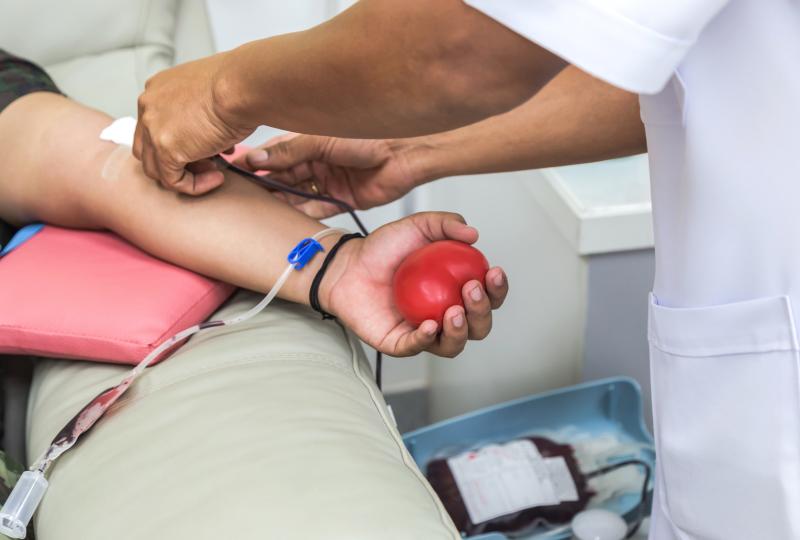 Blood donation has a huge impact on saving many lives globally.
Blood donation has a huge impact on saving many lives globally.Intravenous (IV) iron supplementation may help boost concentrations of ferritin and haemoglobin in repeat blood donors with low iron stores, a recent study has found. However, there seems to be no impact on fatigue and general well-being.
The researchers enrolled blood donors who were randomly assigned to receive either a single IV dose of 800-mg iron carboxymaltose (n=203; mean age, 42.1±12.2 years; 46.3 percent female) or placebo (n=202; mean age, 42.2±12.3 years; 46.0 percent female). The primary study outcome was self-rated fatigue over the past 7 days. Secondary outcomes included well-being and blood parameters.
Six to 8 weeks after treatment, the self-rated mean fatigue score in the iron supplement group was 3.9±1.8, which was only marginally lower than that in the placebo arm (4.0±2.2; mean difference [MD], –0.04, 95 percent confidence interval [CI], –0.41 to 0.32; p=0.813).
However, researchers observed that at the same time point, serum ferritin increased significantly more in the iron supplement arm than in their placebo comparators (142.6±54.5 vs 28.6±61.3 µg/L; MD, 114.2 µg/L, 95 percent CI, 103.1–125.3; p<0.0001). The same was true for haemoglobin (142.7±10.9 vs 137.2±12.0 g/L; MD, 5.7 g/L; 95 percent CI, 4.3–7.2; p<0.001).
Patients who received IV iron supplementation also had a greater burden of adverse events (52 vs 29; p=0.019), though the proportion of participants who developed an adverse event was not significantly different between groups (20.2 percent vs 13.9 percent; p=0.09). No serious side effects or unexpected adverse reactions were reported.